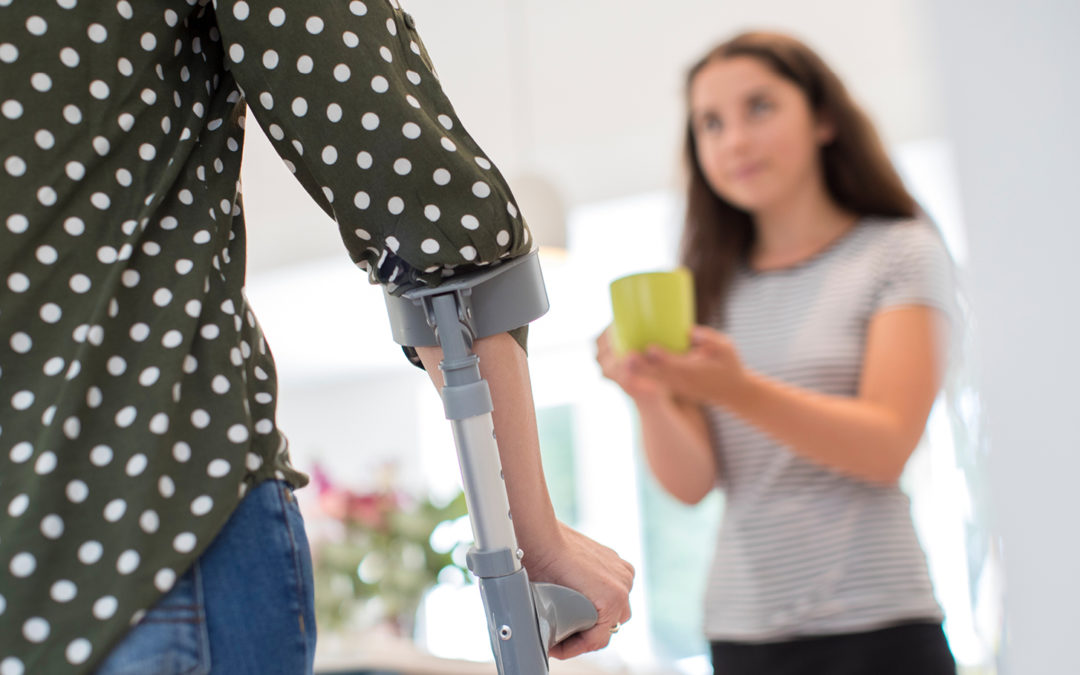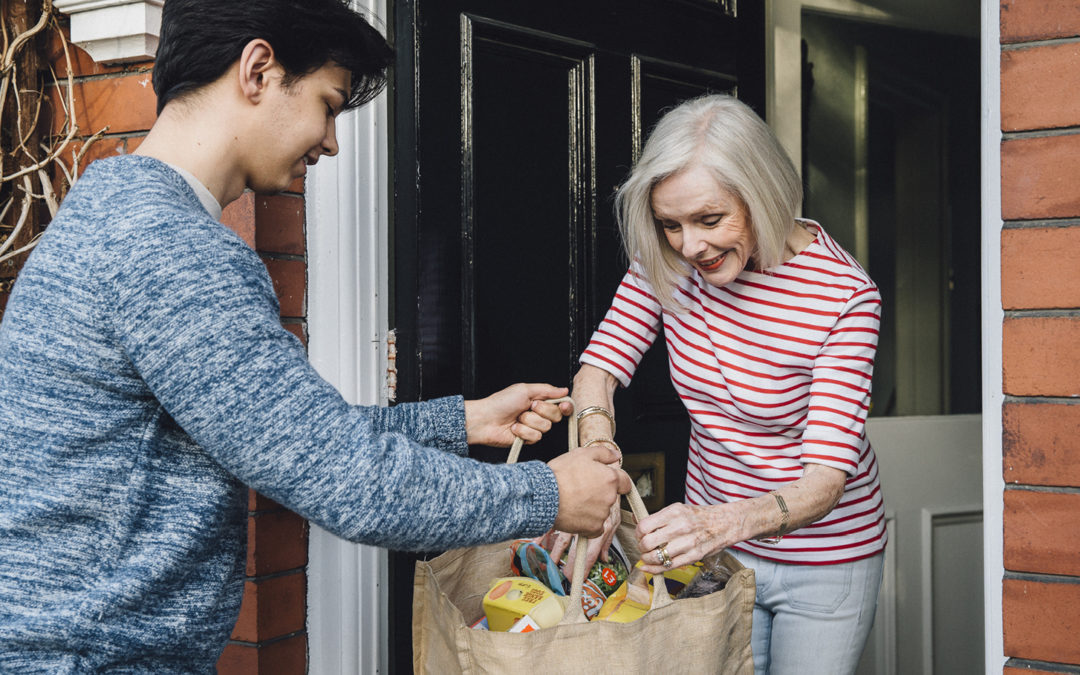
by Admin | 07.12.2018
Caring for a terminally ill child or a spouse or an elderly member of your family towards the end of their life can be heart-breaking. Witnessing your loved one suffer, day in and day out, and needing your support to perform mundane tasks such as walking, eating, bathing or going to the toilet is not only emotionally draining and stressful but can lead to feelings of anger, resentment and frustration.
Although for many carers, caring can have positive and rewarding aspects, there are lots of reasons why caring can also leave you needing support.
If you experience a sense of helplessness and futility at your inability to improve your loved one’s quality of life, don’t despair. You are not alone. We work with carers across London who feel exactly like you; and many undergo depression and their own emotional upheavals in their efforts to come to terms with the situation.
There has been significant recognition in the last few years of the need for increasing support for carers across the country. And along with government agencies and other charities, we have been working hard to improve the lives of carers by supporting them find flexible employment that works around their carer duties. The ability to work, earn money and build on employable skills has proven to work wonders on the confidence and self-esteem of carers, allowing them to do something for themselves.
Family carers are, as the name suggests, family members who care for loved ones who are unable to care for themselves due to physical or mental impairments or simply due to age. Family carers are unpaid and take on caring responsibilities out of feelings of love, obligation and guilt. As the caring role is, in most cases, round the clock, carers usually tend to give up school/university and jobs or careers.
In addition to caring for an unwell or elderly relative, family carers may have their own children and families to look after putting further pressure on their time and mental well-being.
To put things in perspective, we thought we’d share some statistics with you. (Carers Trust)
- There are around seven million carers in the UK – that is one in ten people. This is rising.
- Out of the UK’s carers, 42% of carers are men and 58% are women.
- 68% of young carers are bullied in schools.
- Only half of young carers have a person in school who recognises that they are a carer and helps them.
- Based on Census figures there are estimated to be at least 376,000 young adult carers in the UK aged 16–25.
- One in five people aged 50–64 are carers in the UK.
- 65% of older carers (aged 60–94) have long-term health problems or a disability themselves.
These are startling figures to say the least.
We must not only provide practical support in the form of easy access to information on grants and benefits, helplines they can call when they need information and information on charities and voluntary organisations that can help, but also mental and emotional support in the form of access to local support groups and mental health professionals.
So, what support is out there for family carers?
There are several local carer support services across the UK. You can find the closest one to you by visiting the Carers Trust website and filling in your postcode.
Harrow Carers (link to website) specifically looks after the needs of carers across the London Borough of Harrow.
Some of the services provided by Harrow Carers to support family carers are:
- Health and well-being through courses and workshops, complementary therapies and support groups.
- Mental Health Services through one-to one support and psychological information sessions on topics such as depression, OCD, autism, bipolar disorder and others. Our well-being courses are extremely popular designed to teach carers coping strategies and boost psychological wellbeing. We also have informal drop-in sessions for carers to come in and have a chat with someone who understands them.
- Support for older carers (65+) through improving the quality of life for older carers by addressing their social, financial and practical needs
- Young person’s support services – this is for young people between the ages of 11-17 who care for their disabled of mentally challenged parents, siblings or other relatives. Most of our young carers register with us for different reason, with differing personal circumstances and diverse caring roles e.g. cooking, cleaning, giving medication, emotional support).
- Advocacy support by protecting the rights of vulnerable carers.
- Benefits advice
- Counselling helping carers talk through and find ways to cope with their emotional and personal issues.
- Respite services, providing regular breaks to carers.
- Novus Homeshare – this is a scheme that matches younger people, looking for affordable accommodation and willing to provide help at home, with people who have a spare room and need extra support around the house.
- Volunteering opportunities
- Working for Carers We are a London-wide project that supports unpaid carers, aged 25 or over, to move closer to employment. The project is led by Carers Trust and delivered by its network of 24 partners across London.
- Macmillan Cancer Care Service – Harrow Carers are working in partnership with Macmillan Cancer Support to specifically address the needs of Cancer carers in Harrow.
At Working for Carers, we take great pride in being able to provide a service to family carers that will improve their quality of life. Carers across the UK provide an invaluable service. Recognition of their contribution to society and the provision of practical and useful support is the least we can do as a society.
If you are a family carer, please do not hesitate to contact us (tel number) and we’ll help you either support your employment goals or direct you to the person most equipped to support your needs.

by Admin | 13.11.2018
Picture this: My spouse has been on the kidney transplant list for years. Whilst she has been managing around the home and the children, I’ve noticed a drop in her energy levels lately. Her blood pressure has spiked causing unbearable headaches and fatigue. Her specialist has recommended that her dialysis increases from once a week to 3 times a week at a hospital 30 miles away. Every dialysis session takes 4-5 hours after which she is exhausted. She can no longer do the school drops, cook meals or even get out of bed on most days. I am torn. How am I going to manage her health, the children or my job?
Or…
Picture this: My mother is getting old. Alzheimer’s has hit her hard. She looks at me like she doesn’t know me. The other night she wet the bed. Four nights ago, she was so angry she threw her dinner on the floor. I’ve thought about an old people’s home, but I can’t abandon her. She has been a fantastic mother. It’s my turn now to look after her. She can’t be left alone at home, so I’ve given up my job to look after her. But I need the money. How can I find work that will work around my care duties?
The husband and the daughter are both carers. If this is you or you know someone in a similar situation, please visit our website or give us a call to find out how we can support you in finding flexible employment whilst caring for a loved one.
We often associate the word “carer,” with professionals such as nurses, care home staff, paramedics or childcare nursery nurses or teachers. The truth is that we could all be carers. It could be you, me, your neighbour, your best friend’s sister, the smart looking man you see shopping at Tesco every day or even the little 9-year-old girl who waves at you as she walks to the bus stop every morning.
A carer is anyone, including children and adults who looks after a family member, partner or friend who needs help because of their illness, frailty, disability, a mental health problem or an addiction and cannot cope without their support (NHS England). Carers are unpaid and in many cases, have had to give up work or education to care for their parent, child friend, sibling or partner, full-time.
According to statistics published by The Carers Trust, the 2011 UK census shows that one in ten residents in England and Wales – 5.8 million people – are spending at least part of their week caring for disabled, sick or elderly relatives or friends. This equates to around 10% of the population and is an 11% rise from the 5.2 million carers recorded in 2001. In fact, nearly 300,000 more people in England and Wales are spending 50 or more hours a week caring – now 1.4 million. This is a full-time workforce greater than that of the National Health Service. (Carers UK (2014), Facts about Carers – Policy Briefing, May 2014 (Carers UK).
Most carers don’t consider themselves to be carers and according to NHS England, it takes almost two years for people to acknowledge themselves as carers. Most of us extend ourselves to help our loved ones in any way we can. If a family member or friend is unwell, has a disability or a mental health problem, we believe it’s our duty to look after them. “It’s what anyone would do,” we are likely to say. When this ‘looking after’ is round the clock, so much so that without your support, your loved one would be unable to cope, you are effectively their carer.
A carers role is diverse and challenging, juggling several responsibilities and commitments in addition to being a carer, such as jobs, education, children, health, leaving them feeling guilty, overwhelmed and unsupported. In their capacity as carers, they may help with everyday tasks such as getting out of bed and personal care such as bathing, to preparing and meals and feeding as well as emotional support such as helping someone cope with the symptoms of a mental illness. Whilst most people care for their loved ones voluntarily and willingly, many have no choice. With long hours spent caring for their loved one, it is not uncommon for carers to experience fatigue, social isolation, depression and a lack of self-confidence and self-esteem.
At Working for Carers, we have met some remarkable people who have put the needs of their loved ones above their own, sacrificing their careers, education and employment prospects. They often find themselves lacking the skills, confidence and knowledge to re-enter the workforce when they are ready. Often, carers find themselves in a situation where they are able to work part-time, but feel they don’t know how to go about getting such a role. That’s where we step in.
We believe that our role is to improve the lives and well-being of carers by helping them lead more fulfilling lives because on average, carers retire eight years early; one in five carers gives up employment to care and those caring for 20 hours or more a week who are in employment are also more likely to be in lower paid work than those caring for less than 20 hours and the general population (16% compared with 12%). 26% of carers feel that their caring responsibilities have affected their ability to take up or stay in employment (Carers Trust). It’s our job to look after them.
Our employment advisors work closely with eligible carers to build their employment skills and self-confidence, through workshops on CV writing and interview techniques, computer skills, mindfulness and stress management.
Visit our Workshops page or give us a call on 0208 868 5224 to find out how we can support your job search.

by Admin | 13.11.2018
Becoming a carer, whether full-time or part-time, is challenging for anyone, but more so for those that are elderly themselves or for those who are very young, teenagers or young carers. Carers can come from all walks of life. Many carers have families of their own or have jobs or are in education and must manage other commitments in addition to the caring role they have taken on.
When we talk to carers, words that they often use to describe how they feel are; stress, tiredness, lonely, guilt, anger, fatigue, irritation, depressed and sad were a few. They spend long hours looking after their loved ones, often with no time off or breaks, leaving them socially isolated and overwhelmed. Whilst many carers take on the caring role voluntarily, a large majority feel they have no choice. If, for example, it’s a parent who needs care, children often feel a sense of obligation and guilt to look after them. Or it could be a disabled child who needs his or her parent to look after them. When the caring role is that of a close family member or friend, where emotional bonds run deep, the carer is usually focussed on the needs of their loved one, neglecting their own. This results in low self-esteem, a lack of confidence, a loss of personal identity and often depression.
For carers to do their jobs well, we need to take active steps to look after them and their needs.
So, what does a carer need? The simple answer is consistent and easily accessible help and support.
1. Financial Support
Many carers have given up their jobs to care for their loved one full time or have reduced their working hours resulting in lower incomes, reduced pensions and fewer job prospects. The Government recognises this and carers are entitled to Carers Allowance as long as you work as a carer for at least 35 hours each week. Additionally, Carer Grants can become a financial resource to make ends meet.
Carer grants from local councils share Government funding received between social services, local carer groups and charities.
Whilst there is financial support available for carers, it may be overwhelming to get the process going and understanding what the eligibility criteria are, what forms need to be filled, where do the forms need to be sent, etc.
If you are a carer, we recommend that you visit your local carer centre (link/tel) and speak to an advisor who will guide you through the process of accessing additional financial support and help you with application forms, filling them out, sending them to the right people and helping you in any way you need.
2. Emotional & Wellbeing Support
This is probably the most important need of a carer. The long hours of caring for a loved one, coupled with the emotional toll and frustration of seeing a loved one suffer, can leave a care vulnerable to depression, stress and feelings of inadequacy and loneliness. We’ve often met carers who have told us that they simply need someone to talk to or someone who would just listen to them.
There are several local carer centres and charities like Harrow Carers(Link to website) who conduct workshops on mindfulness, stress-relief and yoga and have trained counsellors and therapists who work closely with carers, supporting them through their emotional and mental challenges.
If you are a carer, struggling to cope, please contact your local carer centre or call xxx xx ( is there a helpline they can call?) who will direct you to the closest carer centre or charity in your area.
3. Employment Support
Finding work that fits around caring for a loved one or after they are no longer carers (in the event of a bereavement), can be a challenge for many carers. If they have been full time carers for several years and have been out of the work force, they often lack the confidence and necessary skills to re-enter the workforce. Many don’t know how to write CV’s and cover letters or what to wear for an interview or even what to say in an interview. They need handholding to even begin the process. We have met carers who are able to take a part-time, flexible role, but don’t know where to look for such roles.
That’s where projects like Working for Carers(link) can help. Working for Carers focuses on helping unpaid carers get back into the workforce, keeping their needs, abilities and circumstances in mind and working with them to find the most workable employment solutions to their specific situations.
4. Support after they stop being carers
What happens to a carer after they stop being carers? If the person they are looking after passes away or moves into a care facility, the person looking after them may feel lost and without purpose. They may need bereavement or grief counselling, help with finding employment and generally re-entering society through support groups and counselling.
Local carer centres and charities such as Carers Trust, or Carers UK, Harrow Carers, will be able to help. If this is you, please do not hesitate to contact your local carer centre or charity or call 020 8868 5224 for help.
Carers are a vital part of UK society, contributing over £100 billion to the economy. With the ageing population, the number of unpaid carers in the UK will only grow, increasing the importance for support for carers. Whilst they are looking after the needs of people unable to take care of themselves, as a society we must look after their needs.
Here’s how you can help.

by Admin | 17.09.2018
Are you a carer thinking about returning to work? It may be that you are no longer a carer or your caring responsibilities have reduced or are able to work part-time, around your caring duties.
Whatever your situation, entering or re-entering the workforce can be daunting. We have and are currently working with carers with a variety of different situations who are looking to make their entrance into the workforce and the single, most common question we hear is “where do I start?”
Whilst most are excited and optimistic, for some, the thought of the process of getting a job, is so overwhelming that they give up even before they’ve started. Many of the carers suffer from feelings of guilt, low self-esteem and a lack of confidence in their abilities due to skills gaps and being away from the workforce for an extended period.
At Working For Carers, our aim is to provide a comprehensive carer support service for carers trying to back into employment, whether full time or part-time to fit around their caring responsibilities.
We thought we’d share some of our top tips for carers keen to get back into employment.
1. Think about what you want to do
What sort of job would you like to do? Would you like to work with children, or in an admin role, or would you like to work in retail or in a technical/IT role? Once you narrow down the type of work you would like to do and you have the skills for, you can focus on looking for a role in those areas.
2. Volunteer
Volunteering is a wonderful way to get into an industry or sector that you don’t have previous experience of. It not only builds your skills and adds to your CV, but it gives you the chance to understand what kind of job you would like.
3. Recognise your skills
The National Careers Service has a Skills Health Check which involves a set of quizzes and activities designed to help you explore your skills and interests. This might be useful to help you decide what job might be right for you.
4. Be organised and systematic
Keep a diary or notebook on hand to jot things down so you don’t forget.
5. Be communicative and responsive
If you have meetings or interviews scheduled, make sure you get there on time. If you need to cancel or are going to be delayed, inform the person you are supposed to meet.
6. Network and talk to as many people as you can.
Don’t isolate yourself. You never know; your neighbour or sister’s friend or friend’s acquaintance might have a role that would suit you perfectly.
7. Retrain to update your skills
There are sometimes specific education grants and bursaries that you can apply for – the gov.uk website has some information on grants and bursaries for adult learners.
8. Free Workshops
Attend free workshops that will get you job-ready.
9. Prepare a CV
Without one, it’s almost impossible to get a job. CV writing takes time and you may need some guidance. Think about attending our CV writing workshop to get the support you need. (link to cv writing workshop)
10. Prepare for interviews.
Job interviews can be intimidating, especially if it’s the first one. Our interview workshops are designed to give you the confidence to ace the interview. (link to interview workshop)
The good news is that there is support available for carers in the UK and we would encourage anyone looking to get back into work to take advantage of these support services. Please do not hesitate to give us a call on 020 8868 5224 if we can help in anyway, to guide and support you in finding flexible employment that will work around your carer responsibilities.




